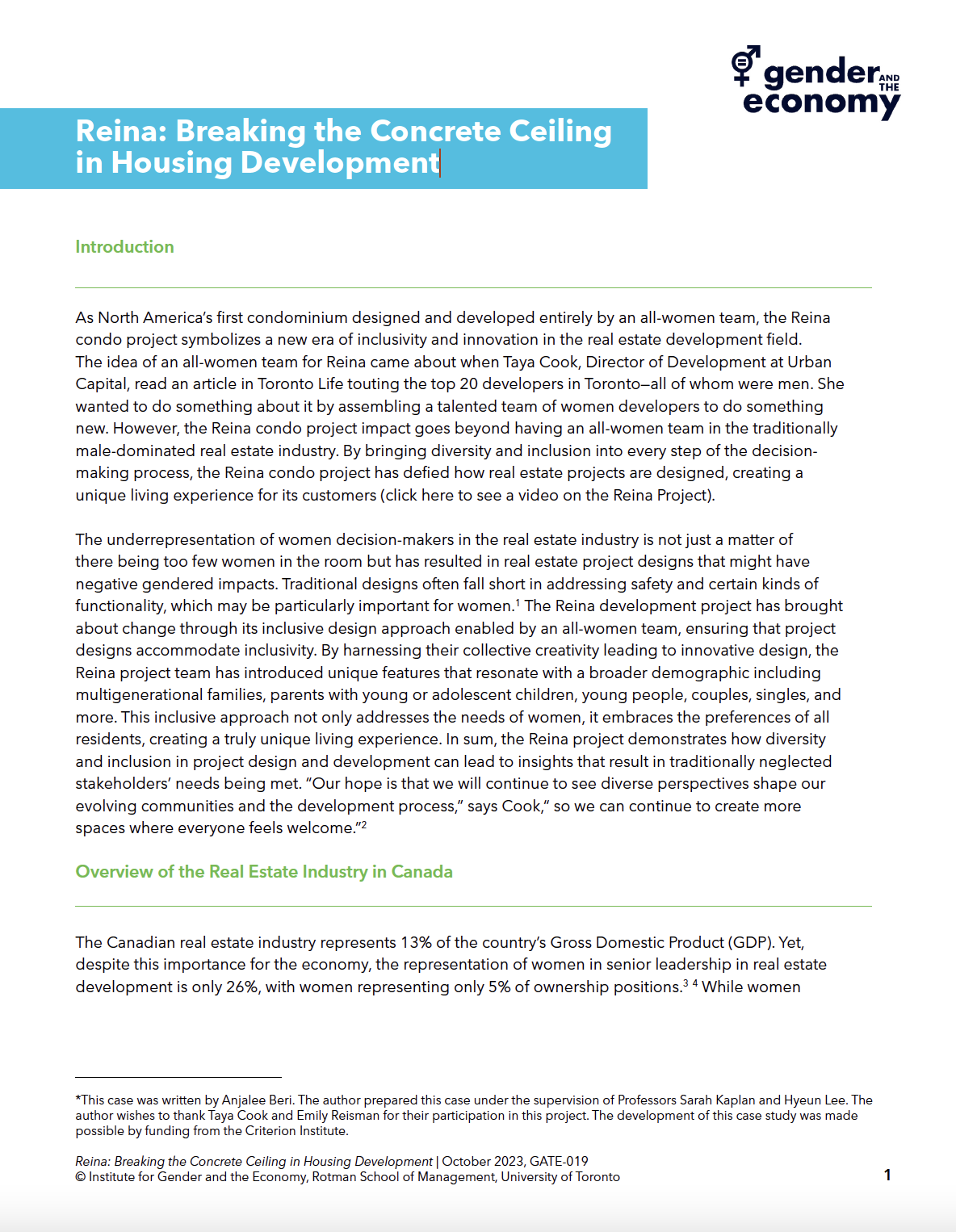Overview
The underrepresentation of women decision-makers in the real estate industry has resulted in real estate project designs that may have negative gendered impacts or may not serve all communities well. By bringing diversity and inclusion into every step of the decision-making process, the Reina condo project has reinvented how real estate projects are designed, creating a unique living experience for its customers.
Course Topics:
- Real estate
- Business design
- Diversity and inclusion
- Gender analysis
- Leadership
Introduction
As North America’s first condominium designed and developed entirely by an all-women team, Reina signifies a new era of inclusivity and innovation in the real estate development field. The concept of an all-women team for the Reina project came about when Taya Cook, Director of Development at Urban Capital, read an article in Toronto Life touting the top 20 developers in Toronto—all of whom were men. She wanted to do something about it by assembling a talented team of women developers, planners and designers to do something new.
The Reina condo project has brought about change through its inclusive design approach enabled by its all-women team, ensuring that the project design accommodates inclusivity. By incorporating lessons and insights from community engagement, the Reina project team has introduced unique features that resonate with a broader demographic including multigenerational families, parents with young or adolescent children, young people, couples, singles, and more. This inclusive approach not only addresses the needs of women, it embraces the preferences of all residents, creating a truly unique living experience. In sum, the Reina project demonstrates how diversity and inclusion in project design and development can lead to insights that result in traditionally neglected stakeholders’ needs being met.
To view and download the full case study, follow these instructions.
This case was written by Anjalee Beri. The author prepared this case under the supervision of Professors Sarah Kaplan and Hyeun Lee.





